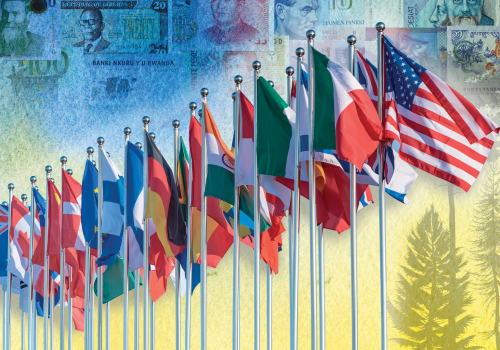Changing Bretton Woods Institutions: How non-state and quasi-state actors can help drive the global development agenda
The Bretton Woods institutions continue to serve as the champions of international development and financial stability, but several factors create a challenge for their continued effectiveness and relevance. The growing finance gap from rising poverty, income and gender inequality and poor infrastructure are threatening global sustainable development. Emerging and developing countries, still recovering from pandemic, are also dealing with challenges related to climate change, food and energy security issues and access to technological innovation. Both the International Monetary Fund (IMF) and the World Bank, on their own, will not be able to effectively tackle these issues in the long-run. An increasingly connected world had led to the emergence of new and increasingly relevant, actors in the global development field.
The emergence of these actors, both non-state and quasi-state actors, which include Multi-National Corporations, Sovereign Wealth Funds, Pension Funds, and Non-Governmental Organizations (NGOs) has demonstrated how critical their inclusion in development-finance is for the BWIs. MNCs are continuing to expand their footprints globally, shifting supply chains and additional economic benefits to both emerging and developing markets, while SWFs and Pension Funds are accessing their growing pool of assets to boost disadvantaged markets and promote sustainability. Despite the recognition of their valuable contribution, the IMF and the World Bank, have been limited in the scope of the inclusion of these actors. The opportunity to create more effective and impactful Bretton Woods institutions will depend on both the willingness and capacity of the institutions to effectively integrate these non-state and quasi-state actors into a constructive operational framework.
This new report examines the increasingly influential role of non-state and quasi-public actors in global development and sustainable finance, specifically through the rising level of sustainable investments in emerging and development markets. Implementing near-term solutions that include these actors in future capital mobilization and development financing will be critical to ensuring the gap between the North and South does not continue to expand. Moreover, integrating the data and expertise these actors into streamlined thematic initiatives and consultations and country-level analysis between the Bretton Woods institutions can strengthen efforts in meeting the Sustainable Development Goals in an increasingly high risk environment.
Related content

At the intersection of economics, finance, and foreign policy, the GeoEconomics Center is a translation hub with the goal of helping shape a better global economic future.


